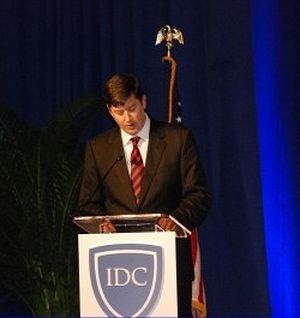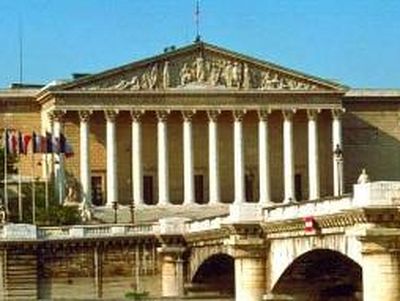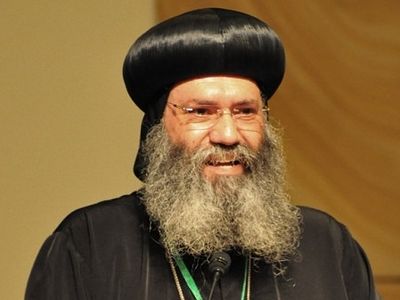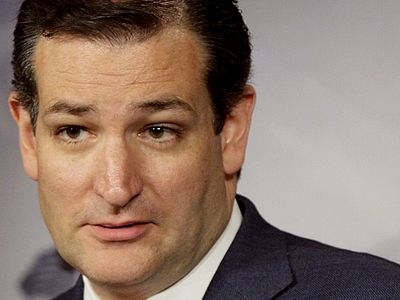September 10, 2014

The most recent effort is a three-day conference (Sept. 9-11) in Washington, D.C., which gathered Orthodox Christians, evangelicals, Roman Catholics and others for prayer, speeches and a lobbying push on Capitol Hill.
“If Christian voices are able to ring out as one from Egypt to Syria to Iraq, Lebanon and Jordan, then we really do believe it will be possible for Middle Eastern Christians to survive,” said Andrew Doran, executive director of In Defense of Christians, which organized the conference.
Doran, who describes himself as a Catholic with a great affinity for Orthodox Christianity, said the gathering has shown how Middle Eastern Christians can put aside their sometimes 1,500-year-old disagreements and take up the cause of their beleaguered brethren.
Bishop Angaelos, head of the Coptic Orthodox Church of England, called for unwavering unity in combating the “medieval” mindset and violence faced by Christians and other minorities in the region.
“We haven’t seen this since the atrocities of Genghis Khan in the 13th century,” Angaleos told several hundred people in a Washington hotel ballroom Wednesday (Sept. 10).
Bishop Angaleos, General Bishop of the Coptic Orthodox Church in the United Kingdom, speaks at the first inaugural summit of In Defense of Christians. The three-day meeting focused on the plight of Christians in the Middle East. Angaleos's church -- the Coptic Church -- is the largest in the Middle East, and its adherents are concentrated in Egypt, where he was born. Religion News Service photo by Lauren Markoe
Bishop Angaleos, leader of the Coptic Orthodox Church in the United Kingdom, speaks at the first inaugural summit of In Defense of Christians. The three-day meeting focused on the plight of Christians in the Middle East. Angaleos’s church — the Coptic Church — is the largest in the Middle East, and its adherents are concentrated in Egypt, where he was born. Religion News Service photo by Lauren Markoe
This image is available for Web and print publication. For questions, contact Sally Morrow.
Roman Catholic Cardinal Donald Wuerl of Washington, introducing Angaelos and two other Orthodox patriarchs, called the gathering historic — the first time in his knowledge “that all of these patriarchs are here in our nation’s capital together.”
Wuerl, who has been outspoken about the need for the world to pay more attention to plight of Christians, Muslims and other endangered minorities, asked the crowd at the IDC’s inaugural summit to speak up themselves. “We can be passive bystanders or we can be active participants in this great effort,” he said.
“In Defense of Christians,” a Washington-based group, was founded earlier this year to press the point that Christianity is endangered in the Middle East — its birthplace — and that “the survival of these historic Christian communities is not merely a moral imperative; it is in the interests of all nations and peoples.”
There are about 12 million Christians in the Middle East – about 5 percent of the region’s population — and they represent the second-largest religious group after Muslims. At the beginning of the 20th century, Christians represented about one in five Middle Easterners, but many have emigrated due to war and persecution.
Iraq’s Christian population, for example, has fallen from 1 million to 400,000 in the past 10 years, according to the IDC.
Doran said the theme of this first IDC summit is the unity of Christians across the Middle East: the event opened with an ecumenical prayer service led by Middle Eastern Christians, Wuerl, and the Vatican official responsible for relations with churches in the region: Cardinal Leonardo Sandri, prefect of the Congregation for the Oriental Churches.
But next year, at the second summit, the push will be for unity among U.S. Christians in defense of their Middle Eastern co-religionists. Asked about the the relative dearth of mainline Protestants at the conference, Doran said there were some, but he hoped more would get involved in the future alongside evangelicals, Catholics, Orthodox Christians and others.
Mainline Protestants have been relatively quieter in their advocacy for Middle Eastern Christians for a number of reasons, said Mark Tooley, a Methodist, conference attendee, and president of the Washington-based Institute on Religion & Democracy. There may be some mainline Protestants, he said, who may feel reluctant to cast stones.
It can also be, Tooley added, that mainline Protestants have traditionally focused elsewhere — on anti-war and anti-poverty initiatives, for example.
Doran said the cooperative spirit of the conference has been heartening, but that it does not mean that all are agreed on how the threat to Christians in the Middle East should be countered.
One Orthodox leader on Tuesday (Sept. 9) declared his opposition to military action to stop the Islamic State militants, a view that is not likely widely shared at the conference, Doran noted. The next day, another called the Arab-Israel conflict the root of Middle Eastern chaos.
He doesn’t speak for the IDC nor his brother patriarchs, said Doran, adding:
“But I don’t think we would be inclined to censor that sort of comment. We welcome a diversity of thought.”



